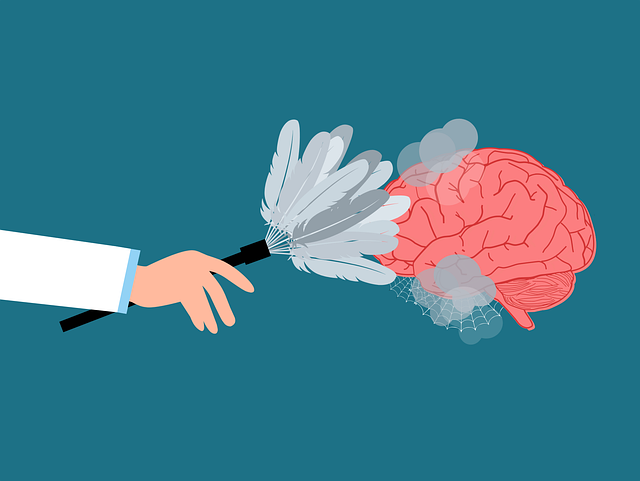Burnout among healthcare providers is a growing concern impacting well-being, patient care, and organizational performance. Early recognition through open dialogue and effective communication strategies is key. Northglenn Depression Therapy offers valuable insights into addressing burnout by cultivating compassion with mindfulness meditation and empathy training. Organizations can reduce burnout by prioritizing provider mental health, implementing flexible scheduling, access to counseling, self-care practices, and reducing stigma around mental illness. Evidence-based stress management techniques, like mindfulness meditation, structured programs, and emotional healing processes, prevent professional exhaustion and improve resilience. Setting clear boundaries, engaging in self-care, and cultural sensitivity training further reduce burnout rates, enhancing job satisfaction and patient care, even in challenging areas like Northglenn Depression Therapy.
Healthcare provider burnout is a growing concern, impacting not just individual well-being but also patient outcomes. This comprehensive guide explores strategies to prevent burnout among healthcare workers, focusing on creating supportive environments and implementing evidence-based stress management techniques. We delve into fostering resilience and promoting work-life balance, offering practical insights tailored for healthcare professionals in Northglenn Depression Therapy settings. By adopting these strategies, healthcare providers can enhance their own lives and the quality of care they offer.
- Understanding Burnout Among Healthcare Providers
- Creating a Supportive Work Environment
- Evidence-Based Strategies for Stress Management
- Fostering Resiliency and Work-Life Balance
Understanding Burnout Among Healthcare Providers

Burnout among healthcare providers is a growing concern, impacting not only individual well-being but also patient care and overall organizational performance. It manifests as a state of emotional exhaustion, depersonalization, and reduced personal accomplishment, often driven by overwhelming workloads, high-stress environments, and a lack of support. Recognizing burnout early is crucial; left unaddressed, it can lead to decreased job satisfaction, increased absenteeism, and even adverse patient outcomes. Northglenn Depression Therapy offers valuable insights into understanding and combating these issues.
Effective communication strategies are a cornerstone in preventing burnout. Open dialogue between providers, administrators, and support staff can help identify and address systemic issues contributing to stress. Additionally, compassion cultivation practices have proven beneficial in enhancing emotional resilience. Techniques such as mindfulness meditation and empathy training can reduce anxiety relief, foster a sense of connection, and create a more supportive work environment. By integrating these strategies, healthcare organizations can cultivate a culture that prioritizes provider well-being, ultimately leading to improved patient care and satisfaction.
Creating a Supportive Work Environment

In creating a supportive work environment, healthcare providers can significantly mitigate burnout risks. This involves fostering a culture that prioritizes mental well-being and promotes work-life balance. Organizations should encourage open dialogue about stress management and implement flexible scheduling to accommodate personal commitments. Additionally, providing access to resources like on-site counseling services or Northglenn Depression Therapy can make a substantial difference in employees’ lives, helping them navigate through mental health challenges discreetly.
Self-care practices, such as Mindfulness Meditation, should be integrated into daily routines. Employers can organize wellness workshops and stress reduction programs to teach staff these essential techniques. By reducing the stigma associated with mental illness through ongoing Mental Illness Stigma Reduction Efforts, healthcare facilities create a safer space for employees to seek help without fear of judgment or repercussions. Such initiatives not only support individual well-being but also enhance overall job satisfaction and retention rates.
Evidence-Based Strategies for Stress Management

Healthcare provider burnout is a growing concern, but evidence-based strategies offer a lifeline. Stress management techniques, grounded in research, play a pivotal role in preventing professional exhaustion. One effective approach is incorporating mindfulness practices into daily routines. Studies show mindfulness meditation can reduce stress levels and improve emotional regulation among healthcare workers, fostering resilience against the demands of their professions.
Additionally, structured programs like Trauma Support Services and Stress Management Workshops Organization provide valuable tools for coping with traumatic experiences and high-pressure environments. These initiatives often incorporate techniques from Emotional Healing Processes, helping professionals process difficult emotions and develop healthy coping mechanisms. By integrating such evidence-based practices into healthcare settings, organizations can create a supportive environment that prioritizes provider well-being and, in turn, enhances patient care.
Fostering Resiliency and Work-Life Balance

In today’s demanding healthcare landscape, fostering resilience and work-life balance is a critical strategy to combat provider burnout. Mental health professionals in Northglenn Depression Therapy play a vital role in equipping themselves with inner strength development techniques to navigate the challenges of their careers. By prioritizing self-care, setting clear boundaries between work and personal life, and engaging in stress management practices, healthcare providers can enhance their ability to cope with the emotional demands of their roles.
Furthermore, incorporating cultural sensitivity in mental healthcare practice is essential for building resilience. Understanding and respecting diverse patient backgrounds, beliefs, and experiences allows providers to tailor interventions effectively. Mental health education programs designed with a focus on cultural sensitivity empower professionals to provide inclusive care, fostering stronger connections with patients and ultimately contributing to improved job satisfaction and reduced burnout rates.
Preventing burnout among healthcare providers is essential for maintaining a healthy workforce and ensuring quality patient care. By understanding the causes of burnout, creating supportive work environments, adopting evidence-based stress management strategies, and fostering resilience, healthcare organizations can create a more sustainable and fulfilling workplace. Incorporating practices that promote work-life balance, as seen in Northglenn Depression Therapy’s approach, can further mitigate stress and enhance overall well-being. Through collective efforts, these strategies can revolutionize the industry and support professionals in their noble pursuit of healing.














